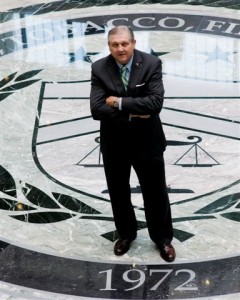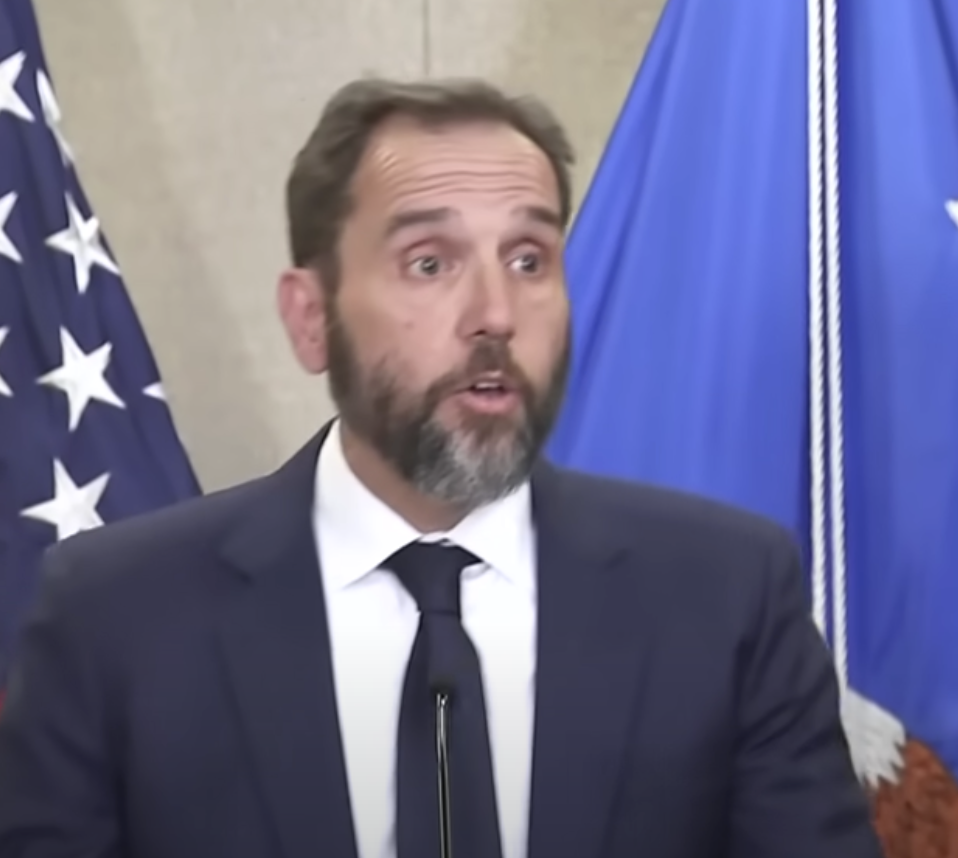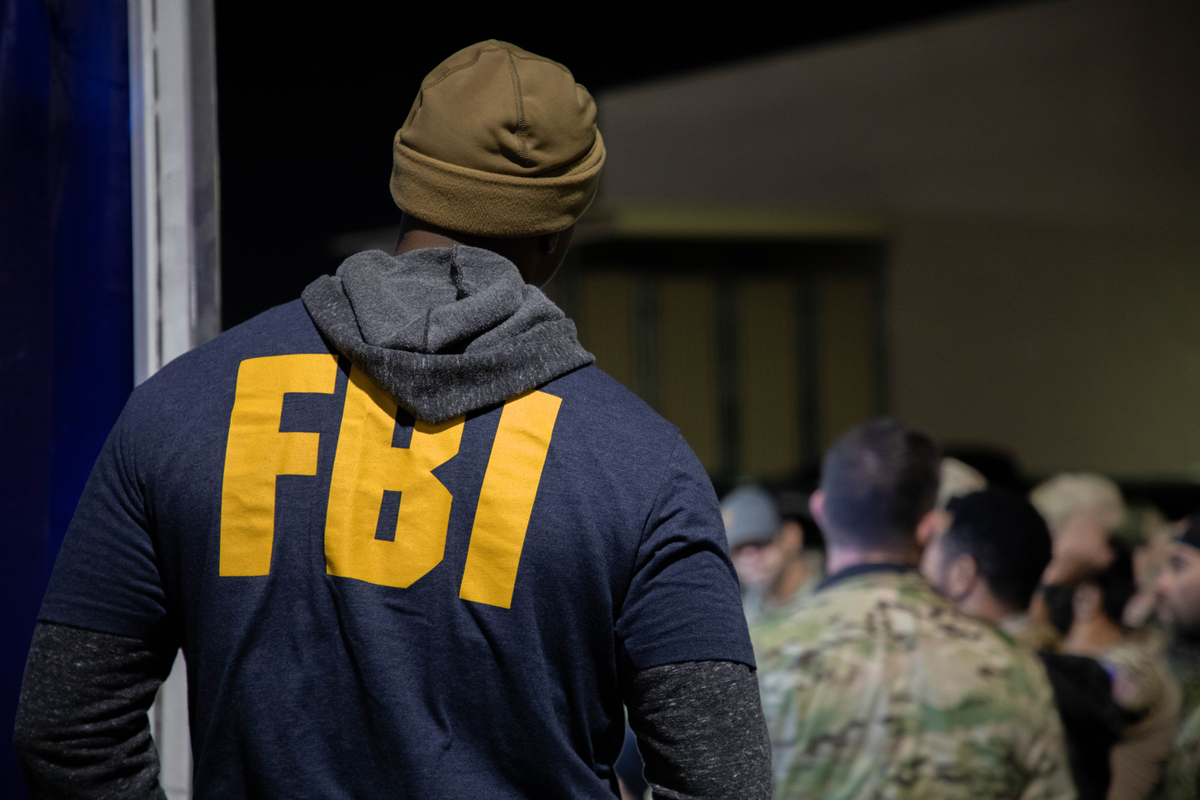James Cavanaugh recently retired as a Bureau of Alcohol, Tobacco, Firearms and Explosives official after 33 years. After years in management and handling crises, he offers his advice on the Gulf oil spill.

Handling a crisis as a leader is different than everyday leadership. The pace and the tempo of the event require the leader to step outside of the day-to-day operations and assume a different posture.
What works in the everyday world of leadership is not what works in the world of crisis leadership. I had my share of crises in a leadership role in ATF. But nothing compares to this. Still, I have some thoughts I wanted to share.
The United States, it’s leaders and the whole government apparatus have now been thrown into a new kind of crisis. It is not the crisis we’re normally used to dealing with, hurricanes, floods, tornadoes, terrorists, foreign wars, fiscal problems.
No, this is all new, a catastrophe made by man, born in greed, fueled by our own insatiable desire for oil.
However, that discussion is for another day. Indeed the president and Congress are discussing and working to put in place, and have put in place some commissions and groups that will try to prevent similar disasters. That is good, but it is one example of the cart careening at full throttle past the horse.
The horse that the leadership has to ride now is the one where BP, Transocean, Halliburton and others are currently turning the Gulf of Mexico into the La Brea tar pits. Crisis leadership requires fast-moving and quick action to beat the adversary and set up a strategy to prevent further damage.
There is no question that an extraordinary effort by all levels of government, including it’s leadership has been ongoing. Even the industry, the men and women of the aforementioned companies as well, have been putting in the hours and working to the point of exhaustion to try to cap the well. Scientists, engineers inventors all have dived into the oily problem.
But working hard isn’t always working smart, and dragging the Kafkaesque bureaucracy down to the Gulf region is not in itself going reclaim this unbelievably important and beautiful area.
I offer these comments on crisis leadership because I’ve made all the mistakes before. I dropped the ball, I failed to see something coming, I was too slow out of the chute or my strategy and structure were not well designed for the crisis at hand.
I learned each time over a 36 year law enforcement career (most with ATF) and vowed as Churchill advised, not to make the same mistakes again, rather to make new mistakes. And one of of the key lessons of crisis leadership is to allow for mistakes.
Bureaucrats demand no mistakes.
A little mess, or a failed attempt at skimming up the oil for example is OK, if it is a genuine effort toward solving the crisis. Recognize that it failed and try something else.
Bureaucrats want perfect, but perfect is way too slow. With each experience I had over the years, mistake or success, I developed scars, judgment, and with each judgment, knowledge and ultimately more wisdom.
The president is to be commended for his three trips to the Gulf, certainly no one can legitimately question his desire to help the people of the region, the environment and all involved.

He wants to do it, he’s talked about doing it, he’s traveled down there.
Then why does there seem to be this feeling of something is not right, or something is not happening at the leadership level?
The incident command is set up, Adm. Alan is the national incident commander,he’s talking, he’s working, he’s leading.
So why is the country having this Angst? It is because crisis leadership is so unique and so subtle that the right moves at the right time have to coincide with the right strategy and the right resources.
On the Thursday before Memorial Day weekend, the president was in San Francisco attending a commitment to a fundraiser for a Senator.
The well was gushing, the crescendo of the crisis was growing, people were fearful and it would have been the right time for the president to fly down on Air Force One that Friday, spend the holiday weekend and 3 to 5 days at the crisis, be in the crisis command post and in command.
I have lost many holiday weekends for bombings, arsons, killers and sensitive undercover operations or barricaded gunman.
Many people along the Gulf had lost their weekend, and certainly will lose many in the future.
This would have been a good opportunity for the president to be there and a hang there for a few days. Be that as it may, he did fly down the following week and met with parish presidents, governors and fishermen and people on the coasts and commanders working the case.
He looked the best and in absolute leadership control in the video clips when he was seated at the command Post Sans Tie, next to Adm. Alan with the video screens arrayed behind him.
It was the one time the country got to feel that the leader is at the crisis, he is in Charge, making sure the strategy is implemented, getting it right, removing the obstacles, doing the best any leader can do. We all felt better, and he got it rolling, but he left.
Something about our human makeup, maybe it’s just the way we Americans are, but press conferences with suits on from the Rose Garden, or even bending down to pick up a tar ball with two fingers on the beach leaves us just aching inside, aching for the Gulf, for the people of the Gulf and for the president because we want him to succeed.
It really is his first crises, and his prior experience, and brilliance as an attorney and a Senator, still leaves him wanting for the right answers, the right moves.
But every General has a first battle to command, and every Boxer has to fight his first pro fight. It isn’t a negative, it’s just a fact. Right now it is a Championship bout, round three of a 15 rounder. He hung in there, done ok, took a few punches, but can still win and be champ. Listen to the old corner men, execute their advice. They want you to win.
So how does he do it? What does he do? What has he done already that’s been very good and what should the President and the broader government do now?
Certainly the president has done some good things to date. He has mobilized the incident command, ships and planes, the bureaucracy at all levels and he gets the problem and wants a solution.
He canceled a trip to Indonesia and rerouted his schedule to go to the Gulf. That was good.
There is no question he was well received there and his command and leadership at that point was a high water mark for him and for the country.
His latest effort on an escrow account from BP for the Gulf region is excellent as well. Some of that is slow in coming. It should have been done sooner as it serves to remove obstacles, in this case financial in nature.
After handling many different crisis, although admittedly not on this scale, personnel would always ask during our hot wash assessment what could we have done better?
The answer always contained this one element: Everything we had in place after 45 days, should have been in place in two or three days. So don’t beat yourself up, Mr. President it happens.
The slow-moving nature of this crisis has set the tempo a little different, it’s almost ominous as the tarballs and the slicks and the plumes or clouds move across the gulf.
Therein though lies the president’s great opportunity to grab his footing, shake the bureaucracy to it’s senses, take absolute control and be seen as the leader driving a strategy, removing the obstacles in setting the course direction and speed. We all benefit.
Let me suggest some specific strategies and not just nebulous stuff, like be a better leader, or just do something. I like specifics.
Do this and you will be in Command, really, literally, figuratively and in everyone’s mind. You will kick some obstacle butt and push power down. Things will then happen, speed up, get fixed, get new energy.
The president should get underway as the commander-in-chief one of the largest battleships or cruisers in the fleet. One with giant staterooms, meeting rooms and communications equipment.
He should deploy that battle wagon just off the southern coast of the Louisiana in sight of shore and plan a 3 to 5 day leadership command of the incident.
Each overnight he should sail to do a different state. He should helicopter and fast boat out the people he needs to see. Start at Louisiana, steam off the Mississippi coast the next day, then Mobile Bay, then Pensacola and the Destin area of Florida.
At each stop he should have on board members of his incident command team and officials or deputy Cabinet officials who are capable of removing obstacles that are put in the way of local officials trying to clean up this God awful mess.
The West Wing should be moved to the battle cruiser for 3 to 5 days. The federal officials, the parish presidents the governor of Louisiana , etc., will get a day with the president and the cabinet officials to set the strategy, implement the plan, and more than anything else, remove the obstacles and push the power down.
The ship should sail each night and that should be repeated the next day, anchored offshore in Mississippi, Mobile Bay and the Florida Panhandle. Officials can be helicoptered and fast boated out to the ship.The President can make a few shore trips as well.
That 3 to 5 day command and leadership control from the Bridge of a large naval vessel would be the seminal leadership act necessary to beat the bureaucracy back, to stop the oil, to kill committees and blockers and the complete “we cannot do that” crowd.
With the action leadership of the president from a place that only he can do it, from a power that only he has, with a new energy assigned to the crisis that we haven’t seen before.
Lee Iacooca, once said, “the speed of the boss is the speed of the team”. The president knows and he will let everyone else know how important it is to have the parish presidents, the county mayors, the City Mayors and state governors able to get the resources, personnel and finances they need to protect their citizens and the gulf.
The governors know how to cut through the bureaucracy, to get things done, to take action. Action is needed now and has to be demonstrated first by the commander, the leader, the president.
After the leadership trip to the Gulf Mr. President, go back to the White House and make your first phone call to Boone Pickens and set us on the path to use natural gas ( which is 30% cleaner than oil) as a transportation fuel to bridge us to electric cars, solar cars, hydrogen cars , Star Trek transporters or whatever is next.
Don’t listen to the critics who say that you have to be more emotional.
What you have to be is who you are. Leadership in a crisis is about where you have to go, and stay awhile, what you have to do when you’re there, setting the strategy forward, defeating the adversary, pushing power down and removing the obstacles.
The first obstacle you will run into will be those on your staff who will tell you that you don’t have to go down and stay for 3 to 5 days, or that your schedule is cut in stone, or you have already been there, or you don’t want to be on a ship because President Bush was on a carrier once.
Recognize and take out those first few obstacles. You want others to remove some, first you have to recognize them yourself. Once on the bridge, it will become very apparent who else is an obstacle and whose tail you need to kick.
It is all the obstacle creators, the wall builders, the “that will set a bad precedent crowd”, “we would have to re-write the regulations.” crowd. They will stand out.
Once they are neutered you will energize and mobilize all the doers involved, the action leaders and it will be you the Commander, the leader, who sets the course, direction and speed that took us to the place we wanted to go. A gulf region as it was before BP.
We are all behind you, Mr. President. This thing is not going away soon, there will be more problems, even with the relief wells; perhaps hurricanes, bigger leaks or more of them.
It could go from bad to worse.
There’s no time to waste. I am in your corner. Hope to see you on that bridge.
(PS no suits or ties on the bridge.)





